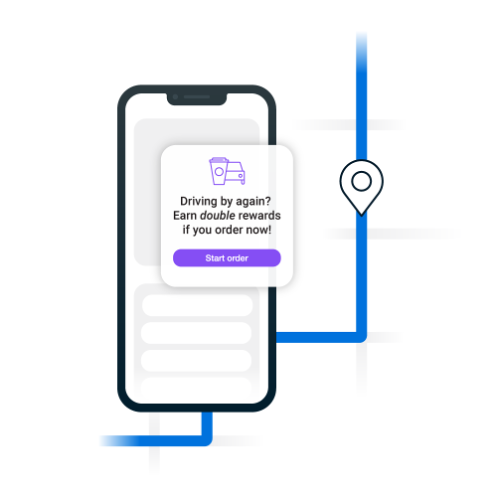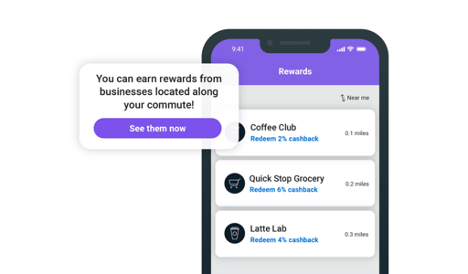What is Arity Insights? 3 themes from the mobility data ecosystem Read article


For centuries, loyalty programs – and, later, loyalty cards – served an essential purpose, providing frequent customers with exclusive discounts or benefits. Now, mobile apps aspire to do the same, helping businesses turn every one-time purchase into a loyal app user and long-term customer. However, while apps can initiate that valuable connection, without personalized incentives, it may be difficult to maintain.
With more than half of users uninstalling an app within 30 days of downloading, how can businesses level-up their apps’ user engagement and increase retention?
It all comes down to the value exchange. And with mobility data – also known as driving behavior data – you can unlock new ways to increase value for both your business and your customers. Here’s how you can drive loyalty by developing a deepened understanding of your customers and giving them the rewards they want.
When it comes to understanding customers, first-party data is gold. Not only does it hold reliable insights specific to your existing customers, but it’s also considered a safer type of data in today’s privacy landscape.
Right now, many businesses are already leveraging first-party transactional data like the time of purchase or the type of items purchased to fuel their mobile app experiences. Look no further than the Amazon app’s home tab, featuring recommended items “inspired by your shopping trends” or “related to items you’ve viewed.”
However, there’s an opportunity to drive growth with an even more powerful type of first-party data through Predictive Mobility. With insights into where, when, and how your customers drive, you can gain a better understanding of their everyday behaviors – beyond just their in-app interactions.
By integrating with Arity, you can collect and leverage mobility data to understand customer patterns – like regular commutes and work schedules – and lifestyles – like low/high mileage drivers, busy multi-taskers, or safe drivers. With these insights, you can create connection points that help turn loyal customers into more frequent buyers. You can reach the right person not only at the right time, but also at the right place.
For example, using insights into a customer’s common routes, retailers or restaurants can leverage their app to offer a deal or promotion when the customer is most likely to be driving past one of their locations. This contextual data helps businesses serve up relevant rewards to each customer based on when it’s most useful and convenient for them to make a stop and – hopefully – a purchase.


Data is a critical component of personalization. So, of course, this value exchange isn’t possible unless customers understand what they’re receiving in return for their mobility data. So, to make it worth it, businesses should clearly communicate the benefit as well as provide frequent and tangible value to users.
According to Arity’s mobile app user trust survey, 65% of app users are willing to share their data in exchange for rewards such as cash, points, and products while 50% are willing to share in exchange for discounts and coupons based on past purchases and browsing history.
So, what can this mobility data-driven personalization look like?


While these are only just two use cases for Predictive Mobility, there are countless ways businesses across industries can leverage driving data to enhance their app’s value prop – turning people into loyal app users and customers.
As a strategic partner for mobile apps Arity has unique insight into how apps can gain and retain users. And the answer is trust.
Apart from providing frequent and tangible value to consumers, best practices to ensure that win-win mobile app experience include:
Clearly, we’ve evolved past plastic loyalty cards and transactional data. Mobility data gives mobile apps a new way to deliver rewards and personalization to their users – one that keep customers coming back for more.
Ready to turn your app users into loyal customers? Contact us to learn how mobility data can work for your business.